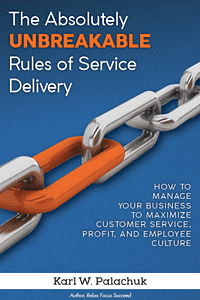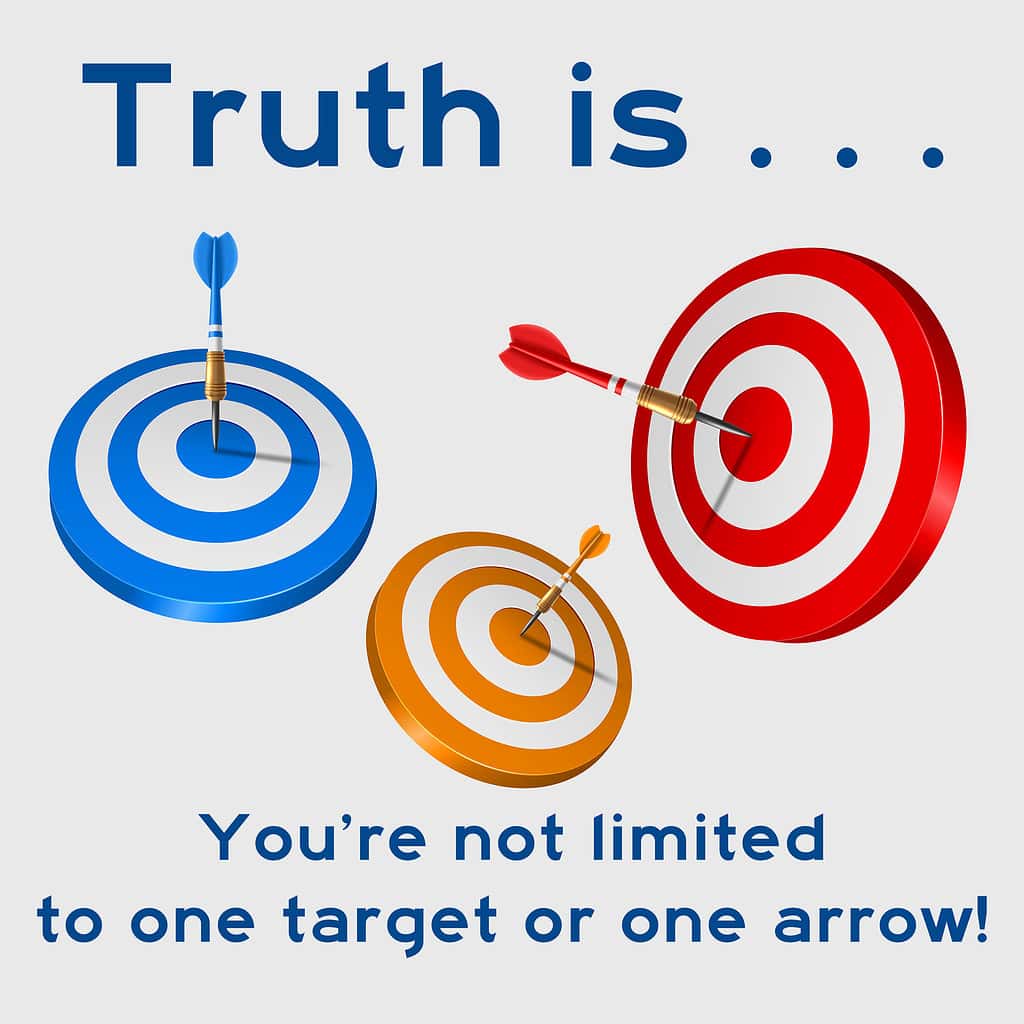One of the most important things that you can do in your business is figure out why you’re in business. If you haven’t done so already, go read Start with Why by Simon Sinek. It’s a truly spectacular book. So that’s your first homework. It’s also a good audiobook.
Sinek points out that nobody buys what you’re selling because they need that product (service). The product or service is probably available from other companies. People do business with you because of why you do what you do. Think about the worst customer service experiences you’ve had: You were dealing, in almost every case, with somebody who doesn’t know why their job exists.
They say things like, “We’ve always done it this way.” Or, “We can’t do that.” Or, “Comcast won’t give you a static IP.” Uh, except when they do. These are people who are focused on trying to get by. They don’t understand exactly what their function is in their company. So, fulfilling your need is not part of their equation.

Now think about why YOU are in business. I’ve heard people define their company mission like this:
• “We provide the best tech support.”
• “We provide the best, fastest service anywhere.”
• “We provide supreme customer service.”
Defining some guiding principle for your business is extremely important. But if you say, “Well, I just love software, I love installing software, I love patching software, and I like showing people how to use software,” that’s not why you’re in business. That might be what you do, but it is not why you are in business.
I’m a firm believer that you should have guidelines that everyone in your company knows. I have a set of rules or guidelines for my business.
And, coincidentally, those rules form the basis of my new book, The Absolutely Unbreakable Rules of Service Delivery. See below. To see the list of rules, read the table of contents you’ll find on that site under “Look Inside.”
When I decided that something was important enough to become an unbreakable rule, I wrote it down and added it to the list. The title of this one-page document has changed over time. Eventually, it became a handout that we printed out and distributed.
Everybody who works for me has this on the bulletin board right next to their face, so that they can always see it. These rules are the company guidelines that we say to each other over and over. We repeat these things to each other all day, every day.
Some of these rules help us make money. Some of them keep our work standards high. Some build culture. All of them help us understand as a culture what’s important inside our company.
As you build your list of unbreakable rules, you may not agree with all of mine. That’s fine. Scratch off what you don’t like, and add your own. You may have other rules for your life, or your business, that guide your success and personal fulfillment.
And while my audience is primarily IT service providers, many of these rules apply to any small business, or any service delivery business. For example, “We only work with people we like.” That rule can dramatically improve your morale and culture. It’s also an example of a rule that can increase goodness within your company but might cost you some money. You have to be committed to the belief that there are enough nice people in the world to keep your business afloat (there are).
The Giant Jigsaw
When I think of these rules, I imagine them to be a large jigsaw puzzle. All the pieces have to be there in order for you to create the whole picture. If you take something away, then you have you don’t have the whole picture. I’m a firm believer that all these rules fit together.
When I sold one of my companies, the guy who bought it asked me flat out, “Will I make as much money as you did?” And I said, “Probably not, because I built this company on a series of unbreakable rules that all fit together. If you change anything, you will probably make less money.”
For example, if you follow most of the rules but don’t sign contracts, or don’t get paid in advance, you will make less money. If you don’t encourage clients to buy new equipment, you’ll make less money.
Note: Of course, you may come up with a completely different set of rules. But please read through each rule in this book and give it a chance. While this list may not be perfect, I can promise that it’s pretty good.
Some of you know the name Vilfredo Pareto. There’s a function people in political science talk about called the Pareto optimal equation. Let’s say you’re negotiating something among many players. For example, consider several nations negotiating a treaty. The Pareto optimal position is the position in which every single thing in this equation is in its most advantageous position.
That does not mean that everyone gets what they want. But each need is maximized to the extent it can be, given the variety of needs. In other words, if you change anything, the balance is no longer optimal for one or more actors. So, “Pareto optimal” means everything fits together exactly and precisely, and each element balances the others.
Of course, you can’t recreate my business. You probably don’t live in Sacramento, California. You don’t have my employees. You don’t have my clients. You don’t have my service offering or pricing. But you can create your set of rules that perfectly balance your business.
I hope you’ll find this book useful in figuring out what your rules are. Let this be a place to start.
Please note that I am extraordinarily opinionated about all of this stuff. That doesn’t mean I’m right, but you’ll see that I’m rather passionate about these rules.
🙂
— — —
For more great tips on your personal and business success, please check out my new book:
The Absolutely Unbreakable Rules of Service Delivery
Available on Kindle or in Paperback.
More information at










One Response
Great advice Karl. Always start with “why” and then come up with rules for why we do what we do. It is certainly strengthening my team in big ways.